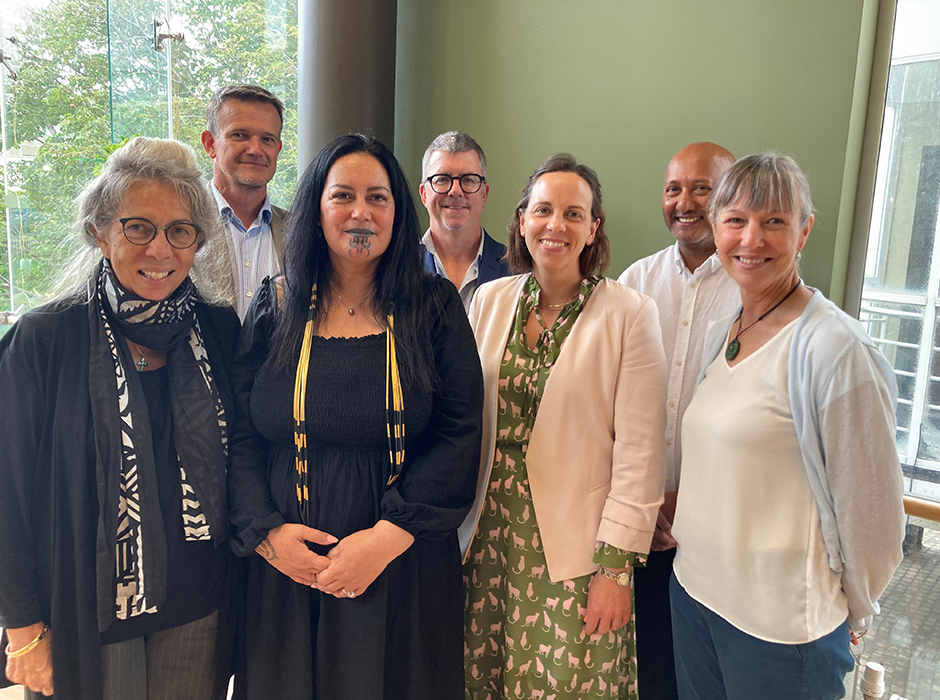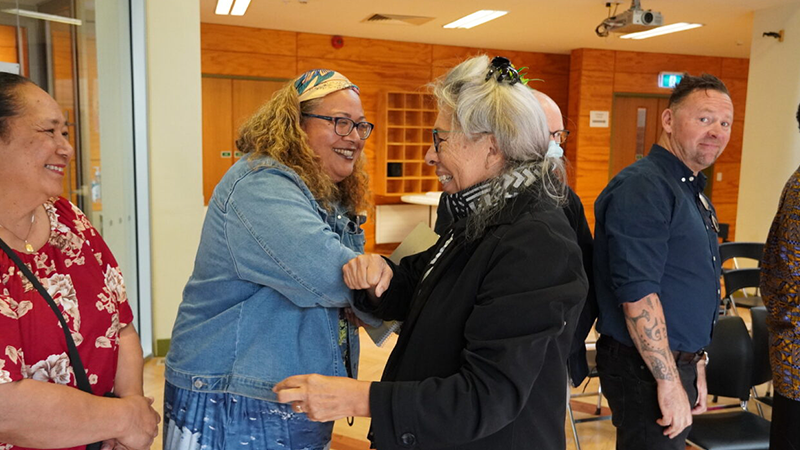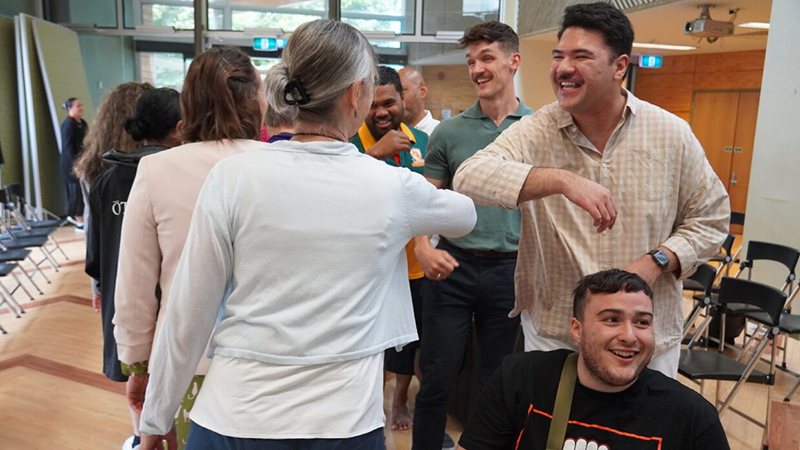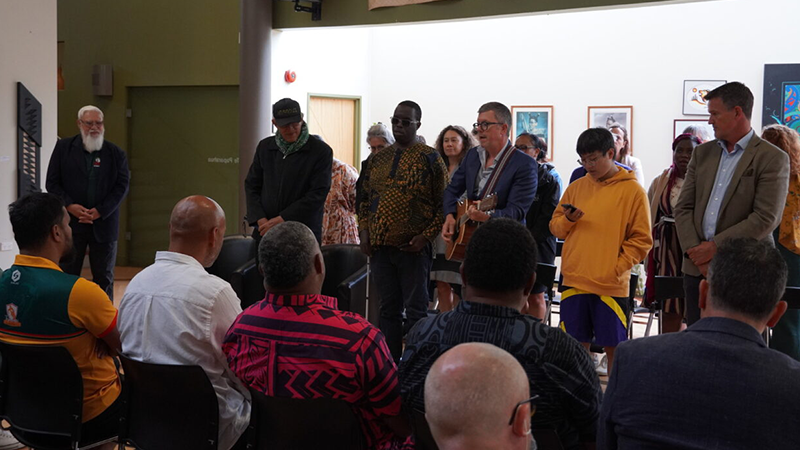
Key members of the team to guide the move of Te Ao Rongomaraeroa to Te Tumu. Front row from left: Jenny Te Paa Daniel, Kare Tipa, Jessica Palmer, Janine Heyward. Back row from left: Will Sweetman, Richard Jackson, Patrick Vakaoti.
Te Ao o Rongomaraeroa |National Centre for Peace and Conflict Studies (TAOR) has been welcomed to Te Tumu | School of Māori, Pacific and Indigenous Studies with a pōhiri on Thursday, 1 February.
TAOR is a postgraduate centre that undertakes multidisciplinary research and teaching in peace and conflict studies. The Centre was founded by the Aotearoa New Zealand Peace and Conflict Studies Centre Trust and the University in 2009.
Included in its founding kaupapa (principles, values) is that the Centre engages in indigenous, Māori and Moriori peace practices and bicultural principles and processes in New Zealand.
Pro-Vice-Chancellor of Te Kete Aronui Division of Humanities, Professor Jessica Palmer, acknowledges the Trustees for their vision for, and ongoing support of, the Centre, and says it is imperative that this kaupapa be actively fostered in TAOR’s teaching and research.
“We are committed to building Te Ao o Rongomaraeroa as a leader in Māori, Moriori and Indigenous peace practices with a strong focus on Aotearoa, Te Waipounamu and the Pacific region,” says Professor Palmer.
“We have a deep appreciation of Dr Jenny Te Paa Daniel for the mahi and direction that she has given Te Ao o Rongomaraeroa as Acting Director for the last two years to lay the important groundwork for this new chapter in the Centre’s work.
“We have a valuable opportunity to contribute nationally and internationally to peace studies from an important Indigenous perspective.”
The move to Te Tumu, from the School of Social Sciences, will provide greater support to staff and students of TAOR to realise this commitment to Indigenous knowledge and practice.
“Te Tumu is a multi-cultural and multi-disciplinary community that is focussed on the betterment of all Māori, Pacific and Indigenous peoples. It will provide a strong anchor for TAOR. There is great synergy here and I look forward to seeing close manaakitanga and collaboration between Te Tumu and TAOR develop,” says Professor Palmer.
TAOR will retain its own identity and name, and the University is seeking to appoint an inaugural Chair in Māori, Moriori and Indigenous Peace Studies, who will also be TAOR Co-Director alongside the Leading Thinker Chair in Peace Studies Professor Richard Jackson.
The move of TAOR into Te Tumu space on campus in Ōtepoti was marked with a pōhiri. As mana whenua and a lecturer at Te Tumu, Kare Tipa (Kai Tahu) has been integral in ensuring Te Tumu manaaki those that come into space and the broader work of ensuring appropriate tikanga is upheld.
“The significance of pōhiri acknowledges the people housed in the whare and for those visitors entering the whare, or in this case Te Tumu. Pōhiri is the process that provides acknowledgements to the parties and the mana carried by both hau kāika and manuhiri,” says Kare Tipa.
“Mana is intangible, mana is felt in the whakapapa of who we are and in our interactions. Te Ao o Rokomaraeroa bring the mana of their mātauranga of Indigenous peoples into Te Tumu and occupy it here and we auspiciously acknowledge that through pōhiri.
“We are a school made up of many Polynesian Indigenous peoples; a school dictum exemplifies this: ‘Te Tumu; He Ūraka Vaka, He Ūraka Reo’, simply stating Te Tumu is the mooring post that anchors bodies of knowledge from Aotearoa and the Pacific and keeps them connected. Manaakitanga is the vaka that floats relationships, it coherently links the differing Indigenous mātauranga at Te Tumu.”
Read more about Te Ao o Rongomaraeroa |National Centre for Peace and Conflict Studies
Read more about Te Tumu | School of Māori, Pacific and Indigenous Studies


